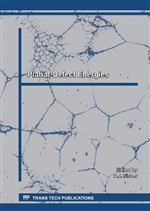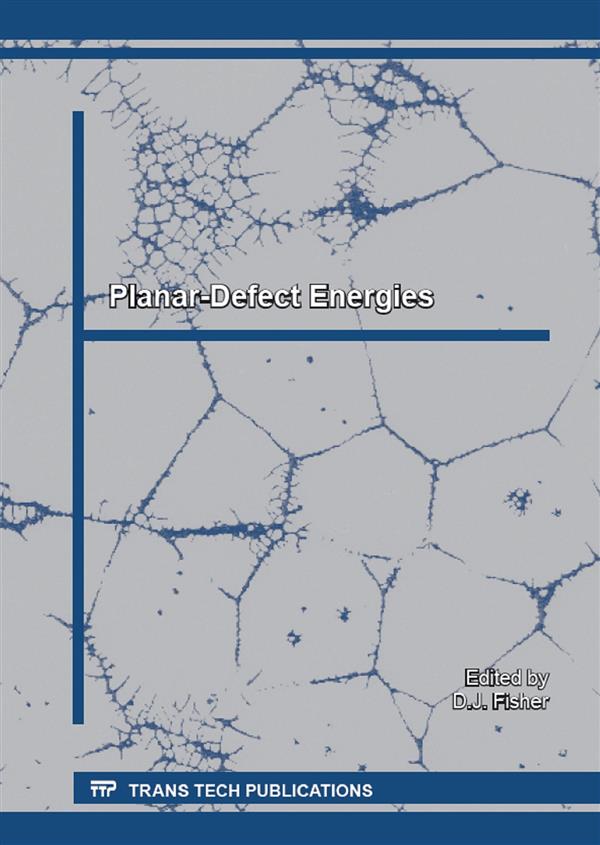Planar-Defect Energies
Description:
Energy, and especially its minimization, are factors which govern all physical processes. Given sufficient time and thermal activation, for instance, grain boundaries will move so as to tend towards a regular array of 14-sided grains. When a grain boundary intercepts a surface, the energies of the surface and boundary govern the precise form of the triple-point. Regions of mismatch within the solid, especially those associated with dislocations, interfere with dislocation cross-slip and thereby affect mechanical properties. The present volume comprises a compilation of measured values of the energies of various planar defects in solids: including grain boundaries, stacking-faults, twins, etc. for a wide range of material groups: metals, semiconductors, oxides, carbides, diamond, graphite, nitrides, halides, ice, and various minerals. The 451 entries cover the period from 1958 to 2014.
Purchase this book:
eBook+Print
978-3-03835-332-4
* 1-User Access (Single User-Price). For Multi-User-Price please fill a
contact form
Info:
Editors:
Dr. David J. Fisher
Details:
Special topic volume
ISBN-13 (softcover):
9783038353324
ISBN-13 (CD):
9783038590323
ISBN-13 (eBook):
9783038267164
Review from Ringgold Inc., ProtoView:
A collection of 451 abstracts outlines recent research into planar-defect energies in metals, semiconductors, oxides, carbon and carbides, nitrides, halides, and miscellaneous materials. Most of the articles discuss energies of stacking faults, but others consider antiphase boundaries, grain boundaries, or a combination of faults. Among the topics are the influence of stacking fault energy on the twin spacing of copper and copper-aluminum alloys, the high-resolution transmission electron microscopy of dislocation core dissociations in gold and iridium, the dissociation of near-screw dislocations in Germanium and Silicon, and dislocations in shock-loaded titanium diboride. Indexes are by authors of articles, materials, and key words.
Ringgold Subjects:
— Inorganic materials
— Materials science

